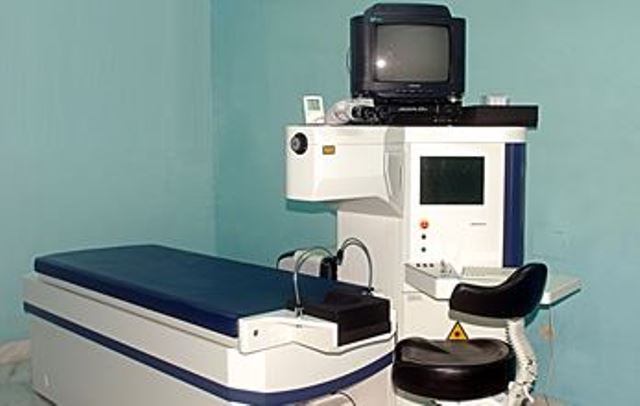What to Expect – About the Surgery:
LASIK:
- Is a simple and safe surgery
- Causes almost no pain or discomfort
- Leaves no scar
- Has fast recovery periods
- Has very few complications
- Can be enhanced, if necessary
However, please keep in mind that the surgery may not correct your vision 100%.
After the surgery, you may still need to wear spectacles of a lower power. Please discuss all concerns with an eye doctor before deciding on LASIK.
Types of LASIK:
- PRK (Photo Refractive Keratectomy): Usually advised for patients with very weak power
- Standard vs Personalized LASIK: Both reshape the cornea to correct the refractive error. The standard laser applies a uniform correction to the entire reshaped area. In personalized LASIK, measurements are taken from the entire eye to create a customized map of your refractive error. The laser is used to apply a correction specifically for your refractive error.
- FEMTO: Blade-free LASIK. The cornea is not cut manually, but by a special laser machine.
Preparing for Surgery:
Before surgery:
You will need to complete a few things before your LASIK surgery.
- You will need to get a pre-surgery eye examination to make sure you are fit for the surgery. This examination typically takes 4-5 hours and can be done at Aravind on any working day. The best time to come is at 8 am. Based on the examination, around 70% of patients will be approved for LASIK surgery. The remaining 30% are ineligible and cannot have the surgery.
- You should NOT wear contact lenses for a minimum of 7 days before coming for the pre-surgery exam.
- When deciding if LASIK is right for you, keep in mind that there is no absolute guarantee that it will correct your vision 100%. You will see much better without glasses than you did before. But, you may still need to wear glasses at times to perform certain tasks.
After surgery:
After the surgery, your eyes may itch and water. Vision will also be blurry. Keep in mind that your eyes are still healing, so it will take time (about 2-3 months) for the vision to clear completely.
For a few weeks after surgery, you should avoid:
- Cosmetics
- Contact sports
- Swimming in pools or hot tubs
The doctor will tell you if and when it is necessary to come for a follow-up visit.
Results – How good will my vision be?:
LASIK is intended to provide clear vision without glasses or contact lenses. Most patients who get LASIK will have very good vision and will not need to wear spectacles. However, the results may vary from person to person. LASIK does not guarantee a 100% correction of vision. If your refractive error is very severe, your vision may not improve as well as expected. However, it will likely be better than it was before surgery.
Risks & Complications:
After surgery, you may have dry eyes or occasional blurry vision for a few weeks. Long term complications are very rare. They include:
- Glare or rings around bright lights
- Double vision
- Watery eyes
- Under-corrections: Under-corrections are unpredictable. But when they occur, they may not give the clear vision you expected. This can be fixed with another LASIK procedure.
- Your vision may not be as clear as anticipated.
- Astigmatism: Though uncommon, astigmatisms are another possible complication. You may need another surgery to correct the condition.
If you have a corneal eye disease, severe near-sightedness, or age-related eye diseases, LASIK is not advisable. The same goes for people who play contact sports or work in areas that increase the risk of eye trauma. If you have good vision without spectacles, there is no reason for you to get LASIK.
All other adults with stable eye power may be eligible for LASIK.

